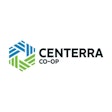
Al-Corn Clean Fuel (Al-Corn) has entered into a stipulation agreement with the Minnesota Pollution Control Agency (MPCA) resolving alleged air-permit deviations associated with Al-Corn’s Claremont, MN, ethanol plant.
Stipulation agreements are negotiated settlements resolving disputes over whether a company may have deviated from the terms of an environmental permit.
After a four-year investigation, the MPCA found Al-Corn Clean Fuel had uncontrolled emissions of volatile organic compounds (VOCs), particulate matter and nitrogen oxide emissions in 2018-19.
According to a release from the MPCA, these uncontrolled emissions exceeded Al-Corn’s permit limits by 35% to 75%. In addition, the MPCA enforcement investigation found the company:
- Exceeded permitted limits on single and total hazardous air pollutants.
- Failed to submit accurate records and emission readings required by its permit. Readings on several pieces of control equipment were out of permitted ranges.
- Failed to apply for permit amendments prior to installing new equipment.
The company paid a $199,000 civil penalty to the MPCA and was required to submit plans to ensure testing and reporting deadlines are met, emissions testing does not exceed permitted limits, and staff are properly trained to meet permit requirements.
“Al-Corn Clean Fuel maintains a sustainable business that enhances the economic vitality of our rural Minnesota communities and employees, while producing products that positively impact our world," says Randall Doyal, CEO for A1-Corn.
"Ethanol use reduces greenhouse gas emissions and helps reduce emissions of air toxics, particulate matter, carbon monoxide, nitrous oxides, and exhaust hydrocarbon by displacing hydrocarbon aromatics in gasoline."
Doyal says the company is proud of its tremendous growth in the past few years, which has supported local corn prices and our local communities. A1-Corn further celebrates its environmental performance as an industry leader in the utilization of technologies that reduce its environmental impacts, says Doyal.
"For example, Al-Corn has reduced energy use by more than 38% compared to the original plant design, uses cogeneration to produce both electricity and steam, and was the first plant to achieve ‘zero liquid discharge’ from its operations," he notes. "Additionally, testing has shown that VOC emissions remain well below A1-Corn’s permit limits."
In moving forward with the expansion of its plant, A1-Corn recognizes that it always have room for improvement, says Doyal.
"To that end, we have been working collaboratively with the MPCA to resolve disputes over our air permit and self-reported deviations associated with the current permit language, primarily relating to recordkeeping, reporting, and proper calculation methods," he says.
"Al-Corn is pleased to have resolved these issues by entering a stipulation agreement with the MPCA. Importantly, there are no systemic concerns about Al-Corn’s
operation.
"The stipulation agreement resolves several important disputed issues and reflects Al-Corn’s on-going commitment to achieving compliance obligations," says Doyal.
"We look forward to continuing to work with the MPCA in our shared objectives of protecting the health, welfare, and economic prospects of those living and working within the communities in which we operate. We will continue to work with MPCA to write a permit for our facility that is accurate, scientific, accurately reflects our facility and operations, and provides clarity and direction for our continued operation and growth in this vitally important industry."


















